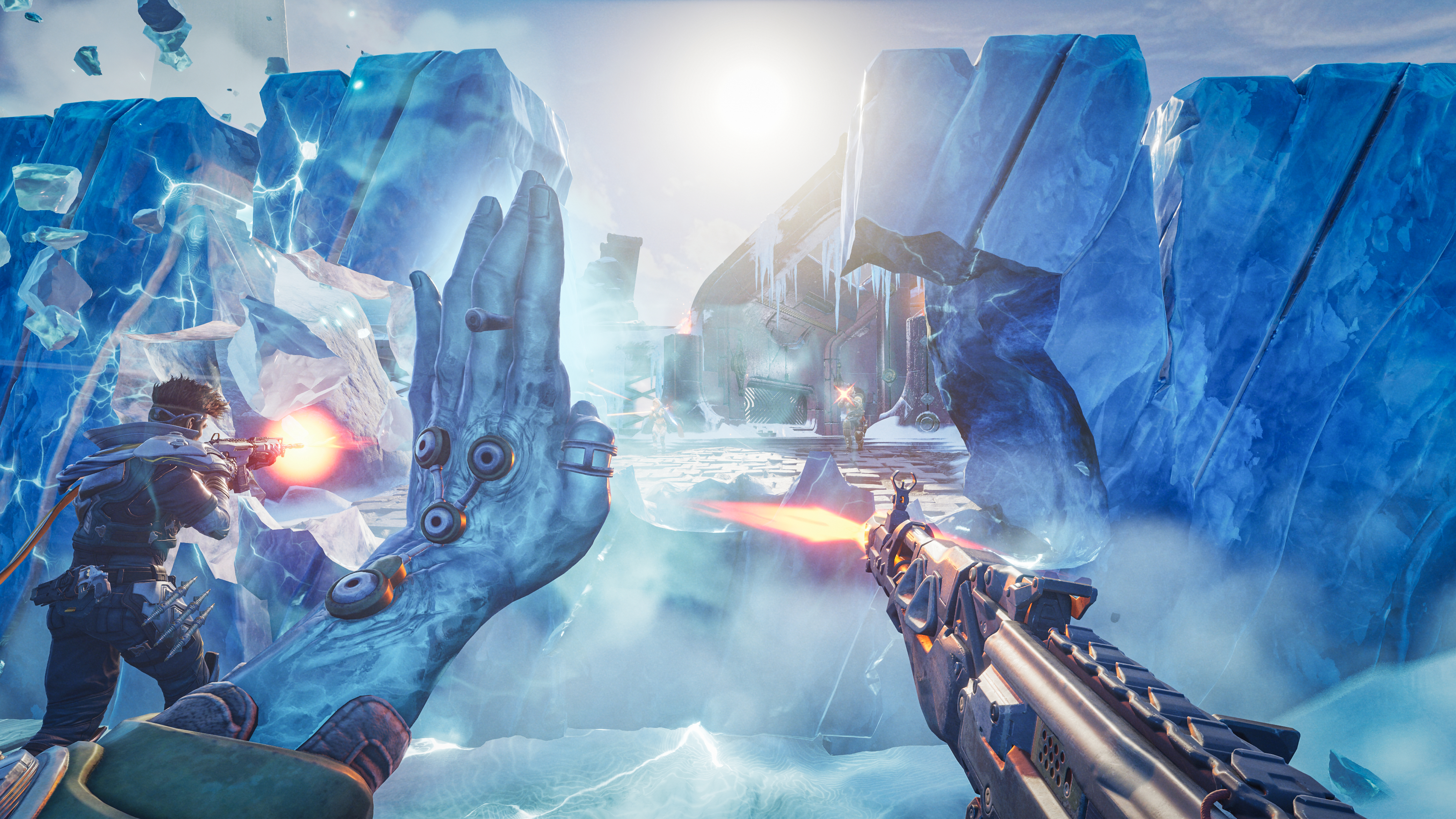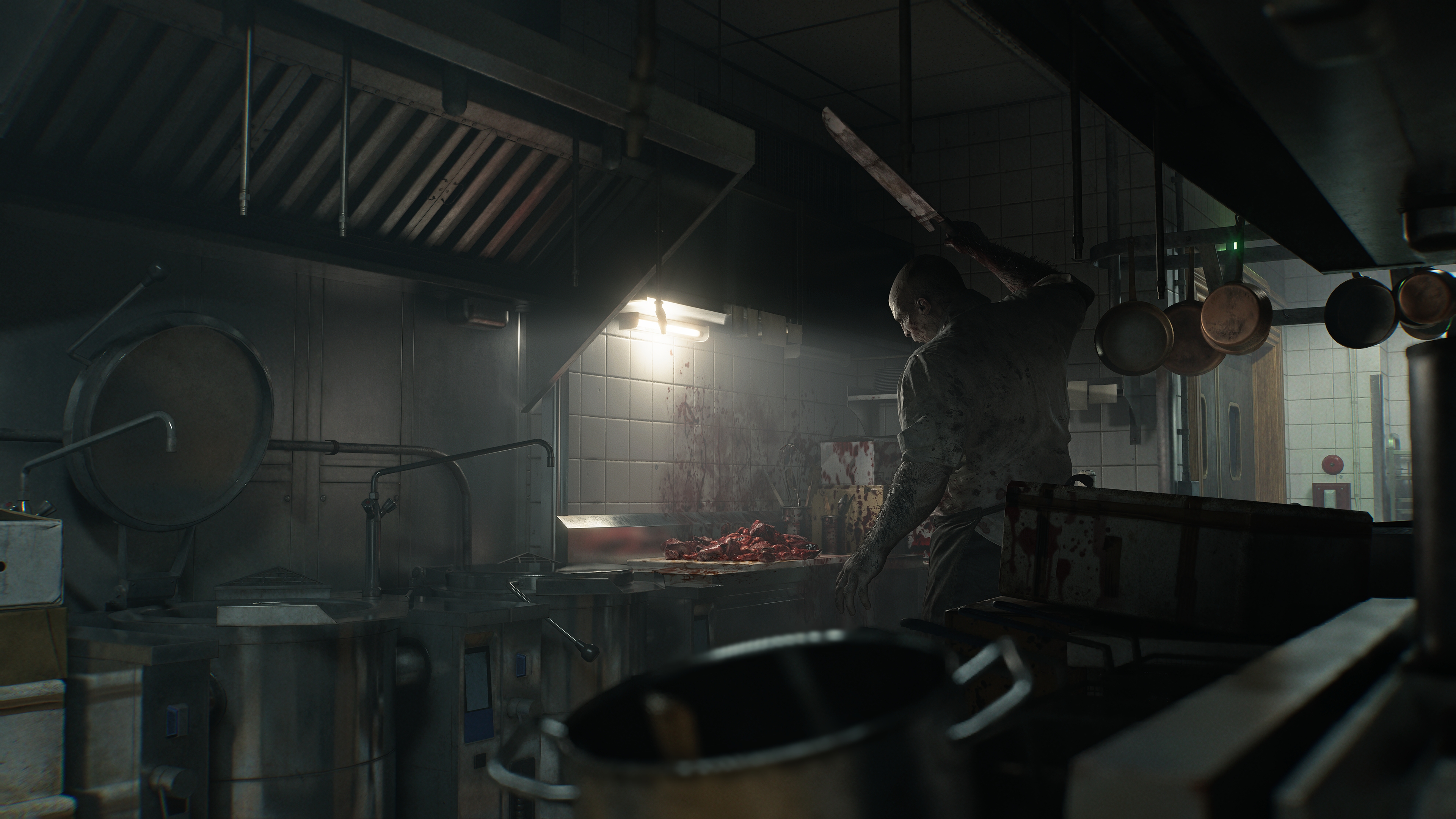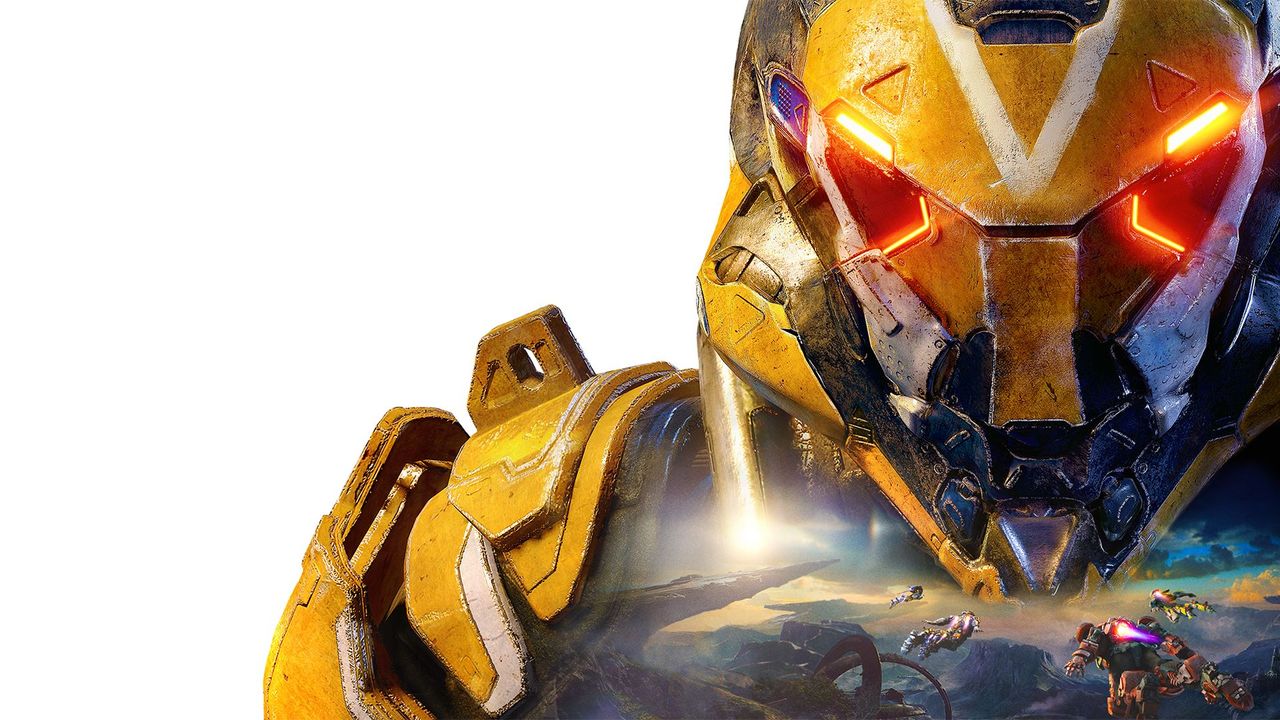‘We have an actual person with the title of Game Master’: A single Helldivers 2 dev named Joel is pulling the strings on its galactic war like an all-powerful D&D dungeon master, war will become ‘more and more sophisticated over time’
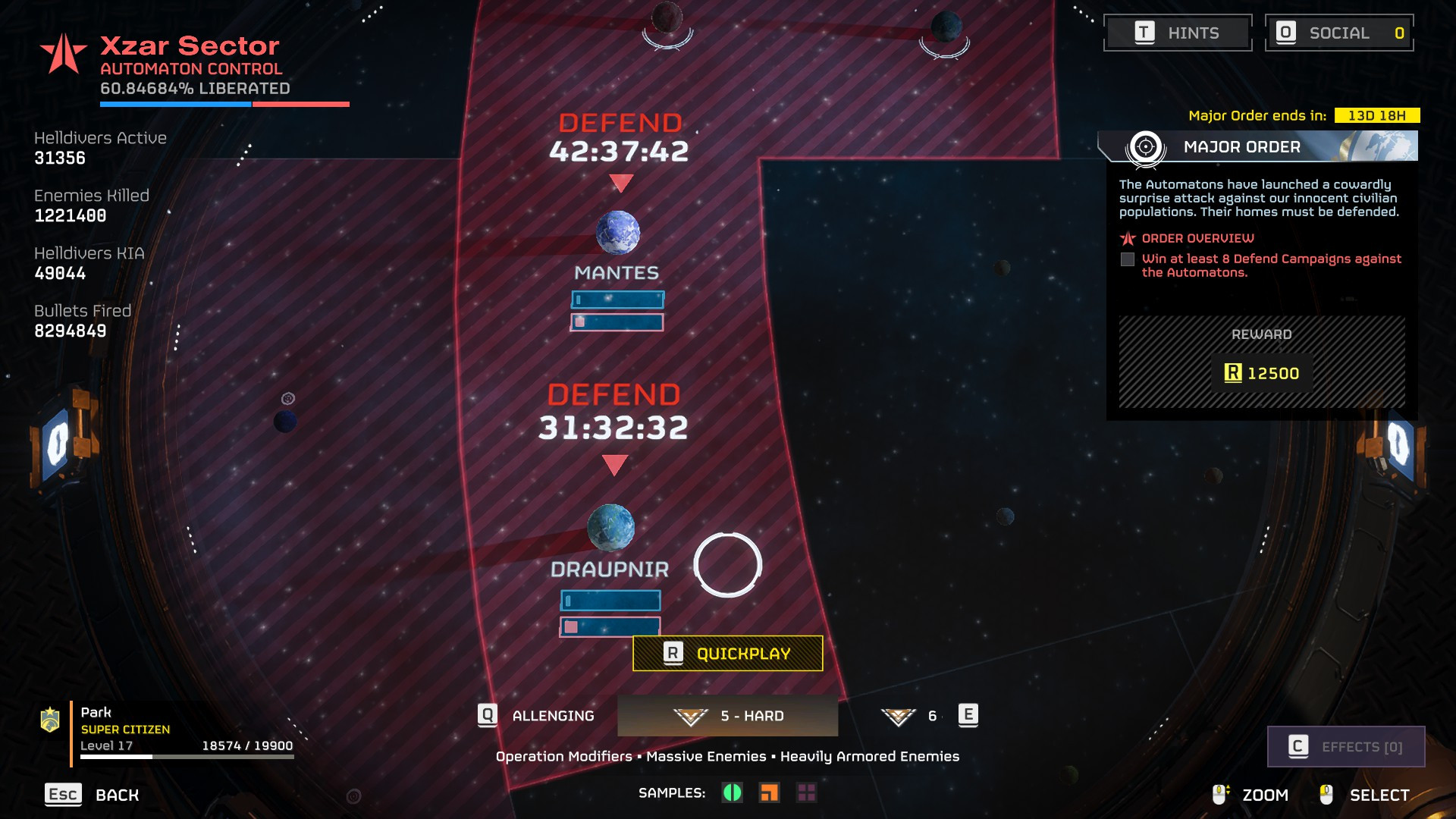
Helldivers 2’s galactic war is much more than a mission selector. In a short time, players have become invested in the status of their favorite planets and reacted to gains and losses in a sector’s liberation. The simulated conflict playing out both in-game and on social media has become an unexpected focal point of the Helldivers 2 experience.
Unexpected to players, that is. To developer Arrowhead Game Studios, the war is a product of careful planning and storytelling by a specific behind-the-scenes individual pulling the strings: what Arrowhead CEO Johan Pilestedt described to PC Gamer as Helldivers 2’s “dungeon master.”
“We have an actual person with the job title of Game Master,” Pilestedt told PC Gamer in an interview today. His name is Joel, and he takes his job very seriously.
“We have a lot of systems built into the game where the Game Master has a lot of control over the play experience. It’s something that we’re continuously evolving based on what’s happening in the game,” Pilestedt continued. “And as part of the roadmap, there are things that we want to keep secret because we want to surprise and delight.”
Pilestedt says Dungeons and Dragons has been a major inspiration for Arrowhead. The studio aims to replicate collaborative, reactive storytelling of tabletop gaming in Helldivers 2, acknowledging the differences between designing a campaign for a small party versus millions of players.
“It’s the same format when you build that for millions of players, it’s just that you can’t get as personal with every individual. But you can still do the same twists and turns.”

Those twists, as explained by Arrowhead prior to Helldivers 2’s release, can be as granular as giving a specific player access to a special strategem mid-mission to spice things up, but it also extends to larger narrativized events in the galactic war. We got our first taste of these events a week after launch, when the offensive campaign against the Terminids was interrupted by Automaton invasions on the opposite end of the galaxy.
There have been some sudden moments where maybe one planet was too easy or one was too hard and [Joel] had to get up in the middle of the night.
Johan Pilestedt, Arrowhead CEO
Arrowhead says it has “predictions” about how the war will play out and has devised “setpieces” that it thinks will be significant, but in true tabletop fashion, the story will change based on player behavior. In fact, it already has. Game Master Joel has already had to grease the wheels for the enemy a few times when the Helldivers community proved a little too efficient at spreading liberty.
“There have been some sudden moments where maybe one planet was too easy or one was too hard and [Joel] had to get up in the middle of the night to give the Automatons a bit of reinforcements so the players don’t take [the planet] too quickly,” said Pilestedt.
Another moment of improvisation was less obvious. After the community managed to liberate the first batch of Terminid planets faster than Arrowhead anticipated, there was an unplanned day of “nothing happening” before the Automataon invasion was to begin.
“So Joel, in his infinite wisdom decided, ‘What happens when a faction wins a portion of a war? Well, they mine everything.’ That’s where the incendiary mine segment came from.” Players might remember this as a 24-hour period where the incendiary mine stratagem was available for free on all missions. A cheeky, if vague moment of payoff.
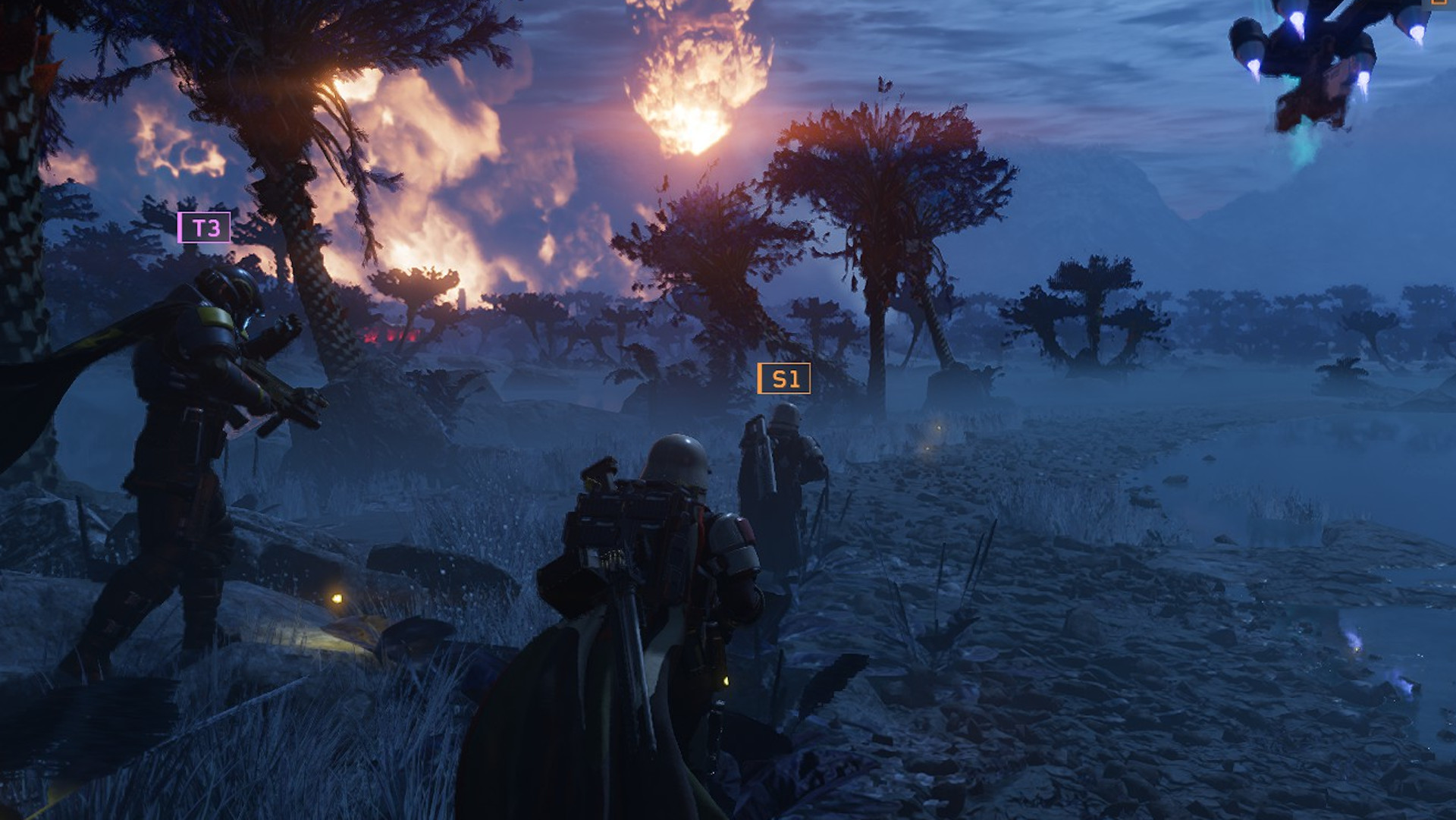
The community’s attachment to each planet is significant.
Johan Pilestedt, Arrowhead CEO
Pilestedt says the team is also paying attention to the unexpected attachments players have developed with individual planets, like the now legendary Malevelon Creek (aka “Robot Vietnam”) planet that recently fell into Automaton control. Players are mourning the loss, both because of its story significance and the fact that the planet is now inaccessible.
“We look at the individual planets as, ‘There was a planet that we made, that was good fun,’ and we have made so many of them. But the community’s attachment to each planet is significant … So one of the things we’re looking at internally is how can we reconsider these planets to become more of a character going forward?”
For Pilestedt, this back and forth relationship with players is also grounded in the studio’s general philosophy that players give feedback and developers listen, which for him dates back to his time as a Quake and Half-Life modder.
“You had like this really good connection between developing the game releasing new updates, play testing it with like a very tight-knit group, and then deploying it to a larger audience,” Pilestedt said.
“But that continuous improvement, that continuous development, and just being able to surprise people and get that immediate feedback from them, appreciating the content we’re putting up has been such a staple to me in how I view games as something that should be developed together with the community.”
As Arrowhead turns its attention to future updates, the community looks toward the next chapter of the war. With the Automaton invasion coming to a close, will Arrowhead direct helldivers back to the bugs? Considering a recent mech leak, perhaps we’ll soon be returning to the Terminid front with new hardware.

